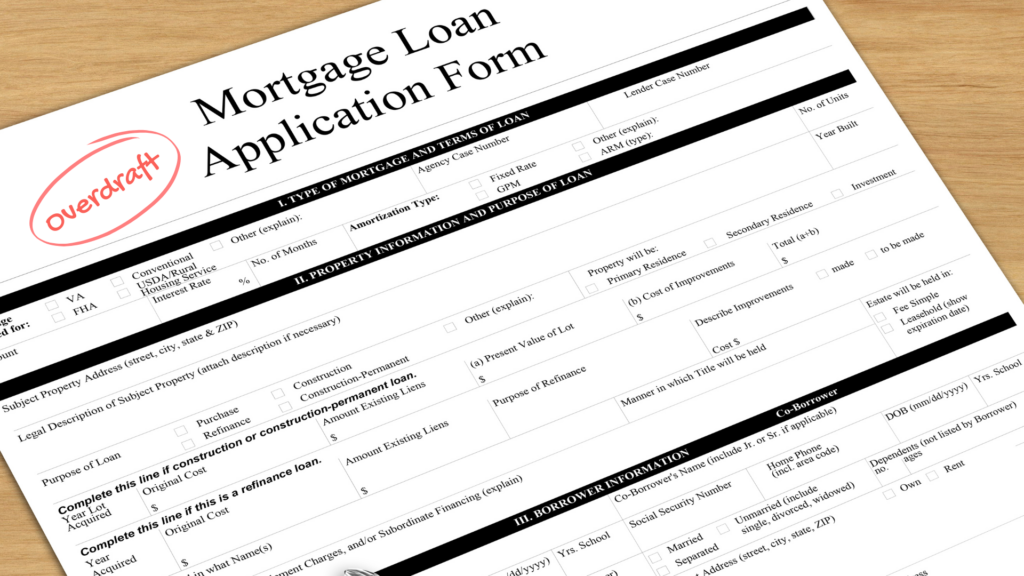- How Do Joint Income Mortgages Work?
- How Much Can You Borrow with Joint Income?
- Can You Get a Joint Mortgage with One Income?
- What Are the Eligibility Criteria for a Joint Mortgage?
- What Size Mortgage Can You Get with Joint Income?
- Does Remortgaging a Joint Mortgage Use Income Multiples?
- Key Takeaways
- The Bottom Line
How Big of a Mortgage Can You Get with Joint Income?

Ready to move up the property ladder with your partner?
Whether you need more space or are relocating for work, understanding joint mortgages is crucial.
As a UK homeowner, you might be surprised by how much more you could borrow when you combine your incomes.
In this article, we’ll explain joint mortgages clearly, helping you see how much you could potentially borrow and what could impact your application.
How Do Joint Income Mortgages Work?
A joint income mortgage is similar to an individual mortgage, but with a few key differences when you apply.
Lenders assess the combined income of all applicants, usually allowing you to borrow more than you could on your own.
This can be especially helpful if you’re a first-time buyer or looking to purchase a more expensive property.
While most joint mortgages are taken out by couples, you can apply with up to three other people.
However, not all lenders allow this, and some may only consider the income of the top two earners in the group.
So, if you’re applying with parents or a friend, the lender might focus only on the highest incomes when deciding how much you can borrow.
How Much Can You Borrow with Joint Income?
When you apply for a mortgage with others, lenders usually look at your combined income. They then use a factor, called the income multiple, to decide how much you can borrow.
In the UK, this multiple usually ranges from 3 to 4.5 times your joint income. But some lenders might go up to 5 or 6 times, depending on things like your deposit size, credit score, and financial situation.
For example, if you and your partner have a combined income of £60,000, you could borrow between £180,000 and £270,000.
But to borrow at the higher end, you’ll likely need a bigger deposit, excellent credit, and a stable job history.
To get a better idea, try our mortgage affordability calculator. It gives you a rough estimate based on your income.
Can You Get a Joint Mortgage with One Income?
Yes, you can get a joint mortgage even if only one of you has an income.
This is common with married couples where one partner is the main earner, and the other isn’t working, perhaps due to raising children.
Some lenders might even consider future income if the non-earning partner plans to return to work and has a clear career path.
However, if you’re not married and applying with someone who doesn’t have an income, the lender will consider them as a financial dependent. This could lower the amount you can borrow.
What Are the Eligibility Criteria for a Joint Mortgage?
Lenders don’t just consider your combined income when deciding how much to lend.
They also carry out a full affordability assessment, looking at your credit history, outgoings, and employment status.
Here’s what you need to know:
Deposit Size
A larger deposit can boost your chances of getting a better mortgage deal.
While the minimum deposit is usually 5% of the property’s value, putting down more can lead to lower interest rates and a higher income multiple.
A bigger deposit is also helpful if one of you has a less stable income or a lower credit score.
Employment Type
Lenders prefer applicants who are employed, as this is seen as more stable.
If one or more of you is self-employed, you’ll need to provide extra documents like tax returns and business accounts to prove your income.
Some lenders have stricter rules for self-employed applicants, but you can still get a joint mortgage with mixed employment types (e.g., one self-employed and one PAYE).
Lenders might also look more favourably on applicants with long-term contracts or those who have been in the same job for several years.
Living Expenses
Your outgoings, like bills, childcare, and existing debts, will be included in the affordability assessment.
High living expenses can lower the amount you can borrow, even with a good combined income.
To improve your chances, it’s wise to review your spending and cut unnecessary costs before applying for a mortgage.
Credit History
Every applicant’s credit history will be scrutinised. If one of you has a poor credit score, it could limit your mortgage options.
It’s important to check your credit reports beforehand and resolve any issues.
Some lenders might offer more flexible terms for those with less-than-perfect credit, but these often come with higher interest rates.
Debt-to-Income Ratio
Lenders will check how much of your income you spend on debt.
A lower debt-to-income ratio (DTI) is better – aim for under 36%. A high DTI might mean you can’t borrow as much or even get a mortgage.
You can find out your DTI here and see how it affects your chances of getting a mortgage. This will help you understand your finances before you apply.
Property Type
The type of property you want to buy can affect your eligibility.
Lenders may have stricter criteria for non-standard properties, like flats above shops, ex-local authority homes, or listed buildings.
These properties might need a larger deposit or may only qualify for specific types of mortgages.
Age of Applicants
Some lenders have age limits for mortgage applicants, both minimum and maximum.
If one or more of you are close to retirement age, it could impact the mortgage term or how much you can borrow.
It’s a good idea to check with your lender or broker if this might be an issue.
Joint Applicant Financial Responsibility
With a joint mortgage, all applicants are equally responsible for the mortgage payments.
If one of you struggles to pay, the others must cover the difference. Lenders will assess each applicant’s financial stability to ensure you can all manage this responsibility
What Size Mortgage Can You Get with Joint Income?
The size of the mortgage you can get with joint income depends on several factors, including your combined salary, deposit size, credit history, and outgoings.
As mentioned earlier, most lenders in the UK will offer between 3 and 4.5 times your joint income, although some may go higher under certain conditions.
For example, a couple earning a joint income of £100,000 could potentially borrow between £300,000 and £450,000, depending on their circumstances.
However, securing a mortgage at the higher end of this range may require a larger deposit and a clean credit history.
Does Remortgaging a Joint Mortgage Use Income Multiples?
Yes, when you remortgage a joint mortgage, lenders still use income multiples based on your combined income. They also consider the equity you’ve built up in your property.
For example, if you and your partner have a combined income of £70,000, and the lender applies a 4.5x income multiple, you could be offered up to £315,000.
If your property’s value has increased and you’ve built up significant equity, this might allow you to borrow more or get better terms.
For instance, if your home is now worth £400,000 and you owe £200,000, you have £200,000 in equity. This strong equity position could improve your remortgage options, even if your income hasn’t changed.
In short, lenders look at both your combined income and the equity in your property to decide how much you can borrow when remortgaging.
Key Takeaways
- Combining incomes in a joint mortgage usually allows you to borrow more than on your own, typically 3 to 4.5 times your joint income.
- A larger deposit, good credit history, and stable employment can increase your borrowing potential.
- You can get a joint mortgage with one income, but the non-earning partner might lower the amount you can borrow.
- When remortgaging, lenders use income multiples and consider the equity in your property to determine how much you can borrow.
- High living expenses, poor credit, and high debts can reduce the amount you’re eligible to borrow, even with a good joint income.
The Bottom Line
Now that you know how your combined income affects your mortgage, you might be wondering about eligibility, borrowing limits, and remortgaging.
Understanding joint mortgages is just the start.
To get the best deal, you need expert help.
A good mortgage broker can guide you through your options, find the right lenders, and make the process easier.
If you want to save time and stress, contact us. We’ll connect you with a trusted broker who can help with your mortgage.
Get Matched With Your Dream Mortgage Advisor...

Frequently asked questions
What happens if you have a joint mortgage and split up?
If you and your partner break up and have a joint mortgage, you have a few options.
You could transfer the mortgage to one person’s name, sell the property and divide the money, or remortgage to a buy-to-let and use the rent to pay the mortgage.
Remember that both of you are still responsible for the mortgage until it’s paid off or transferred.
Can I get another mortgage if I already have a joint mortgage?
Yes, you can get another mortgage even if you already have one. However, you’ll need to meet the lender’s requirements for both loans.
Your current mortgage will be considered when calculating how much you can borrow for the new one. This might mean you can borrow less than if you only had one mortgage.
Can I get a joint mortgage with your parents?
Yes, it’s possible to get a joint mortgage with your parents. This can be a great way to boost your borrowing power, especially if your parents have a stable income and good credit.
But, it’s important to consider the long-term implications, as your parents will be financially connected to you and jointly responsible for the mortgage repayments.
Can I get a joint mortgage if one person has bad credit?
Yes, you can get a joint mortgage even if one person has bad credit. However, your options might be limited.
You might need to work with a lender who specialises in helping people with credit problems.
The person with bad credit will likely affect the terms of your mortgage, such as the interest rate and how much you can borrow.
How does a joint mortgage affect your credit score?
Once you take out a joint mortgage, you become financially linked to the other applicants. This means that any credit issues they have could impact your credit score, and vice versa.
It’s important to consider this before applying, especially if one applicant has a poor credit history.




